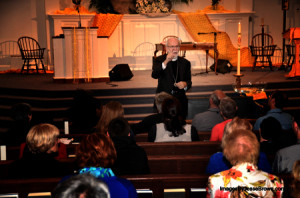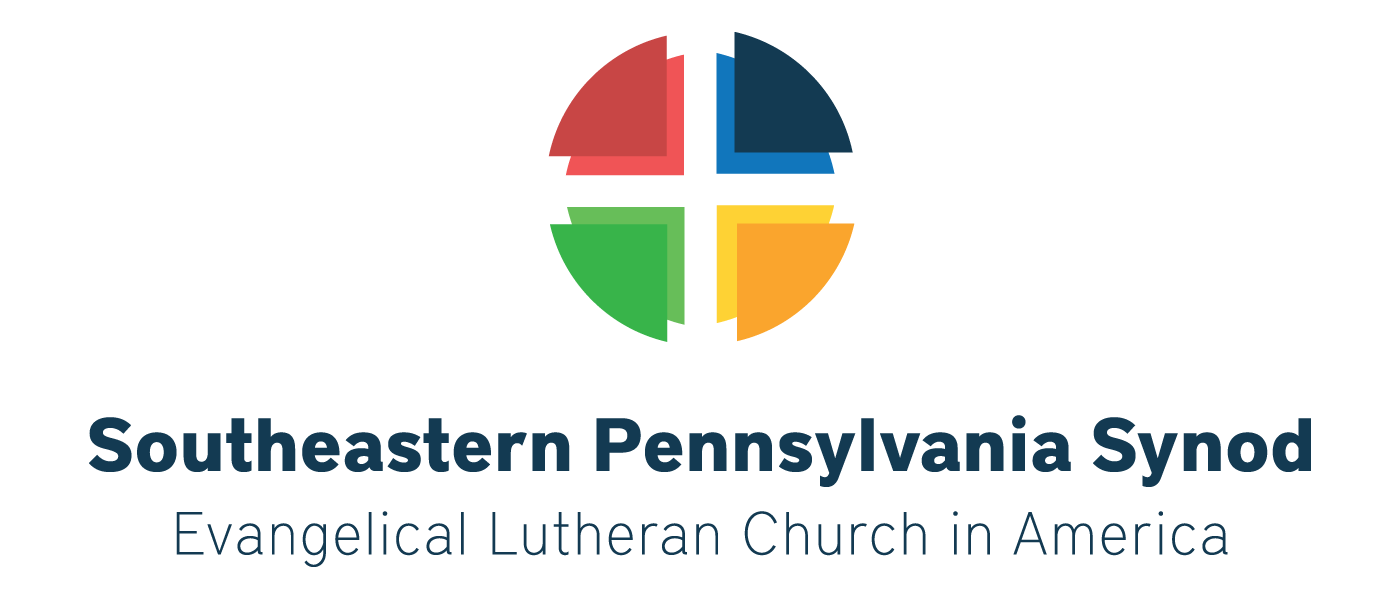May 9, 2014 in 2014 Assembly, Assembly, ELCA
Q&A With Mark Hanson
The Rev. Dr. Mark S. Hanson, former presiding bishop of the Evangelical Lutheran Church in America (ELCA), spoke with workshop participants at the 2014 Assembly of the Southeastern Pennsylvania Synod (SEPA) of the ELCA. Bishop Hanson invited the audience to form small groups and to offer questions. Here are highlights compiled by John Kahler.
Q: What is your favorite television show?
Bishop Hanson: Hanson noted he hates questions asking about “favorite,” then cited Rachel Maddow interviews, and the series “Person of Interest.” His daughters are trying to convince him to watch “House of Cards.”
Q: What were the most challenging aspects of being Bishop?
A: Hanson had been a parish pastor, and two of his congregations became early Reconciling in Christ congregations. The expectation was he would be an advocate for change, but in his Call as bishop he saw his role to help the church make the best decision, especially during Churchwide Assembly and the discussion over the sexuality social statement. As a parish pastor he had become known as an activist, but as chair of the Assembly it was his job not to speak from the heart but to preside over the debate and to help the body make its best decision. In adopting the social statement in 2009, the vote was the exact minimum required to pass. He had to decide what to say, tossed whatever talking points he had prepared and picked up the Bible and read to those who might be rejoicing, those who might be ambivalent, and to those in crisis from the decision. His responsibility as pastor of the church was to help, not advocate.
He was elected not only bishop but CEO of a multibillion dollar organization, though trained as a pastor and experienced as a synodical bishop, overseeing over 500 employees. He learned while in a congregational role to have a great staff, and to be smart enough to have coaches, a spiritual coach and a therapist (also necessary when you have six kids).
Two years after being elected ELCA presiding bishop, he was elected president of the Lutheran World Federation, joining over 70 million Lutherans in 79 countries.
Q: In a time of religious plurality, how do we reconcile this Jesus being the only way to salvation?
A: Religious plurality presents a delicate challenge. We can articulate the Good News and invite others to share theirs. This can give us a deeper appreciation of our own tradition and traditions of others. It can take a long time to build trust, and to stay in conversation to get to a common place, where we are all one humanity and one creation. We need to do this, otherwise extremists will win the day.
We need to deal with several understandings:
– Monitism: I have one truth and can either convince or condemn.
– Relativism: Reducing understanding to the lowest common denominator.
– Collectivism: Selecting a little from each truth. This is popular among young adults, and is like a smorgasbord to choose from.
Hanson suggest a different approach, Critical Pluralism, which doesn’t deny the need to share and invites conversation and understanding between you and others.
He recalled the CBS program “In God’s Name,” where he was one of several faith leaders talking about their faith. In the program, he talked about the meaning of life in the face of suffering, and spoke about the theology of the cross.
Hanson also spoke about three hour conversation of faith leaders with then-Senator Barack Obama, who wanted to hear about issues of the faith-based community and to be challenged by the community. He recalled evangelist Franklin Graham saying Jesus is the way, the truth and the light, and if Obama believed this was the only way? Obama responded that this was his belief as a Christian, but also saying, “Who am I to limit God?”
He concluded the answer by reminding us we need to talk about our beliefs.
Q: One of the items in the assembly packet is the POWER postcard about the regional faith-based organization advocating raising the minimum wage and fair education function. Where does the church stand on these issues?
A: Hanson reminded the group he does not speak for the ELCA, but noted that 30 ELCA bishops had recently been to Washington for a very important advocacy day. He suggested that everybody can speak for themselves.
He suggested we can not lose the intensity in the ELCA social statement on Economic Life, discussing such issues as a living wage, and a sustainable life, economically and relationally. Use the social statement to inform advocacy, and moral imperatives which shape principles of government. He also noted that lawmakers bring their own faith traditions and understanding to their work. Be a voice of conscience, shaped by the prophets, scripture and the social statements. Be tirelessly relentless, and work in coalition to be sure those in power hear from those in poverty, and increasingly from those in the middle class.
Organizing and advocacy should be working together, not against each other. It can be frustrating right now as many actions are perpetrating privelege, and building relationships is no longer part of the culture.
Q: What was your first revelation as presiding bishop?
A: “Christ’s church is not my church.” He recalled the night time prayer of Pope John XXIII, “Lord, yours, not mine. I’m tired, good night.” Hanson’s immediate reaction was, “I cannot do this,” he told his predecessor, H. George Anderson, who recalled he had said the same thing to his predecessor, the first bishop of the newly formed ELCA, Herbert Chilstrom.
He never lost his roots in parish ministry – to proclaim, teach, preside, and administer relationships – except now it was on a bigger stage.
He found he appreciates Lutheran theology, which draws us together, and became more Lutheran. He deeply appreciates Lutheran theology connects people in their daily lives as they live out their faith and tell others.
Q: A parish pastor who also works in the secular world with a diverse group of colleagues, with many heritages and languages, asked about Hanson’s thoughts on the church in an urban context and how to reach out to those with other cultures and native languages.
A: The church sincerely wants to become more diverse, but hasn’t faced the sin of being based in white privilege. To become more diverse, are we willing to die to be reborn again as a Pentecostal church? Is the church willing to let go of the culture the faith has passed on? He suggested the ELCA has not easily become an “American” church, with many groups holding onto their cultural backgrounds as they developed in this country. It is a painful process that requires soul searching to come to terms with privilege. We are not a multilingual society and expect others to accommodate language. The church has not figured out the grace of economics in urban settings, supporting communities to be self sustainable, and redistribution of wealth individually and institutionally. He noted that urban seeds are being sown in Southeastern Pennsylvania Synod.
He talked about the Lutheran Church in Tanzania, where the bishop makes annual visits. At those visits, the bishop will ask how the congregation has been successful in meeting the goals it had set, and is held accountable to the wider community and the wider church.
He sees a future with more bivocational calls and collaborative ministry, and with less dependence on working only with full communion partners to work with other traditions, all in common mission. He held up the Urban Theological Institute at LTSP as an example of working with other traditions to raise leaders for the wider church.
Social Statements of the ELCA, and background on the ELCA’s development of social statements, can be found at http://www.elca.org/Faith/Faith-and-Society/Social-Statements.


